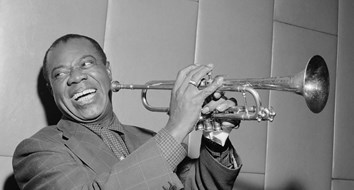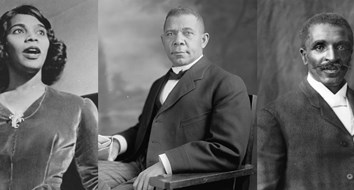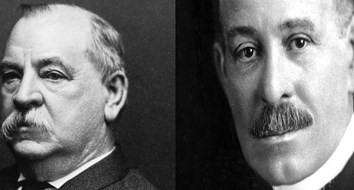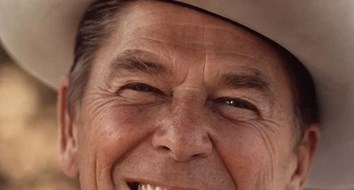As someone who grew up in the 1950s and 1960s, I can’t imagine a Christmas without a few tunes from a certain musical legend. He died at the young age of 45, fifty-three years ago. His renditions of “O Holy Night” and “The Christmas Song” (more commonly known by its opening line, “Chestnuts roasting on an open fire”) are summed up in a single word that happened to be the title of another of his greatest hits, “Unforgettable.” One of the most beloved American entertainers of all time, he was, in the words of a fellow artist, “the best friend a song ever had.”
That’s enough for most old-timers to immediately recognize who I’m talking about. Before I reveal his name, allow me to say a little more about him: He was a jazz pianist, a composer, a pop singer, and a television and movie star. His smile and twinkling eyes melted the hearts of millions. His distinctive voice was described at various stages of his career as a “warm and haunting tenor,” a “dulcet-toned baritone,” and “liquid gold.”
His demeanor was often described as “elegant” and “suave.” His smile and twinkling eyes melted the hearts of millions. Next to the Christmas hits he sang, my favorites from this remarkable performer remain the memorable “Ramblin’ Rose” and “Those Lazy-Hazy-Crazy Days of Summer.” And don’t forget “Mona Lisa.”
Why am I writing about a man that too few people younger than 60 know about? For one, his music was good enough to be immortal. Another reason is that from his life, people of all ages can learn some critically important lessons.
I’m referring of course to the great Nat “King” Cole, born Nathaniel Adams Cole, 100 years ago next March in Montgomery, Alabama.
The Life of Nat
When Nat was four (in 1923), the family moved to Chicago where his father Edward became a Baptist minister. Three of Nat’s four siblings pursued musical careers, no doubt greatly influenced by their mother Perlina, a church organist who taught that music is important to a happy and well-rounded life. A major new hit around the country in 1923 was “Yes, I Have No Bananas,” and four-year-old Nat sang it proudly at his very first public performance.
At age 15, Nat dropped out of high school to put his musical talents to work. If ever the proverbial proof was in the pudding, that was a very smart decision. Within three years, he was recording singles with Decca Records, performing in major musicals and on radio, leading a big band, and playing piano at some of the best-known nightclubs.
Audiences loved his distinctive voice, though he never regarded singing as his greatest strength. “I’m a musician at heart; I know I’m not really a singer,” he later said. “I couldn’t compete with real singers. But I sing because the public buys it.” He intended to make a career as a jazz pianist but explained, “In the meantime, I started singing and I sang the way I felt and that’s just the way it came out.”
He made history as the first black man to host an American television series.
Before he died of lung cancer so tragically early, he logged over 100 hits on the pop charts. He hired bassist Wesley Prince and guitarist Oscar Moore and formed the King Cole Trio in the 1940s, a model ensemble that influenced the entertainment world for decades. He appeared in film, on Broadway, and on television many times. In fact, he made history as the first black man to host an American television series.
His fame at the time rivaled that of Frank Sinatra and Bing Crosby. I doubt that more than a single-digit percentage of Americans didn’t know who this Grammy Award-winning artist was or that the vast majority of them didn’t mourn when he passed.
The Fight against Prejudice
Cole’s illustrious career was sadly pockmarked by some ugly attitudes of the day, however. America had made some racial progress by that time, but much more remained undone. Though he just wanted to please audiences without regard to color, that wasn’t kosher to some. He was attacked by radical activists, both black and white —black ones because he performed before integrated Southern audiences, white ones simply because he was black.
When he bought a home in an all-white Los Angeles neighborhood in 1948, he confronted racism head-on. The KKK burned a cross in his front yard. Informed by some other homeowners that they didn’t want any “undesirables” around, he famously responded, “Neither do I. And if I see anybody undesirable coming in here, I’ll be the first to complain.”
He never let it turn his own soul dark, thankfully
His television show, though widely popular, struggled financially. It never nailed down a national sponsor, most likely because advertisers thought it might produce a racist backlash. It lasted just 13 months, prompting Cole to complain that “Madison Avenue was afraid of the dark.” He never let it turn his own soul dark, thankfully.
About the same time, at a 1956 concert in Birmingham, Alabama, Cole was assaulted by three racist thugs who rushed the stage intending to kidnap him. Though police thwarted the attempt, Cole injured his back in the melee and never again performed in Southern states. Because of a few bad apples, millions of adoring fans in the South were denied the chance to see and hear him in person.
Meanwhile, he was targeted for opprobrium by leaders in the civil rights movement. He strongly supported civil rights and was a lifetime member of the Detroit chapter of the NAACP. He declared publicly that he opposed racial segregation “in any form.” But that wasn’t enough for some.
Because he continued to perform for white audiences, he was denounced as a “traitor” to his race. Future U.S. Supreme Court Justice Thurgood Marshall called him an “Uncle Tom” and derisively advised he perform with a banjo. The black press savaged him because he didn’t crusade for their cause as much as they thought he should. In reality, Cole just treated everybody the way the activists claimed all of us should—equally and without regard to color. He was bringing people together through music.
The Ugliness of Discrimination
A decent person who would naturally view such treatment as deplorable could hardly read of Cole’s life or listen to his songs without thinking, “What’s wrong with these people? Here’s a good soul with enormous talent, bringing joy to millions, and he has to deal with this crap? And why? For no more reason than the color of his skin. How stupid! How de-humanizing!”
I’m reminded of these memorable lines from a great black writer of the Harlem Renaissance of the 1920s, Zora Neale Hurston. In “How It Feels to Be Colored Me,” she wrote,
Sometimes, I feel discriminated against, but it does not make me angry. It merely astonishes me. How can any deny themselves the pleasure of my company? It is beyond me. But in the main, I feel like a brown bag of miscellany propped against a wall. Against a wall in company with other bags, white, red and yellow. Pour out the contents, and there is discovered a jumble of small things priceless and worthless. A first-water diamond, an empty spool, bits of broken glass, lengths of string, a key to a door long since crumbled away, a rusty knife-blade, old shoes saved for a road that never was and never will be, a nail bent under the weight of things too heavy for any nail, a dried flower or two still a little fragrant. In your hand is the brown bag. On the ground before you is the jumble it held—so much like the jumble in the bags, could they be emptied, that all might be dumped in a single heap and the bags refilled without altering the content of any greatly. A bit of colored glass more or less would not matter. Perhaps that is how the Great Stuffer of Bags filled them in the first place—who knows?
Discrimination for the most reprehensible reasons was never peculiar to America. It has reared its ugly head in all parts of the world since time immemorial. It remains a curse and a blight in many places. Just last week, Wall Street Journal reporter Alexandra Wexler shed light on a current crackdown in Tanzania against people for no more reason than their sexual orientation.
Gay people, and others suspected of being gay, are being systematically rounded-up, arrested, jailed, and even tortured for the victimless crime of gayness. I think both Nat King Cole and Zora Neale Hurston would see this the same way they saw racial bias: vicious, moronic, anti-individualist, and ultimately harmful to society at large.
I ponder all the good things the world was denied because those 11 people could no longer live, love, and create.
In late October, a gunman stormed a synagogue in Pittsburgh and killed 11 people. Why? Because they were members (almost exclusively by birth, not conversion) of a group he didn’t like. They were Jewish. Like almost all people when things like that happen, I immediately mourn the dead and pray for their families. Then the next thing I do is ponder all the good things the world was denied because those 11 people could no longer live, love, and create.
Why You Should Choose Liberty
To all the numerous reasons to support the philosophy of liberty, add this one: It is the most inclusive political philosophy imaginable. It starts with the foundation of each person’s unique and precious individuality. It respects human rights that are universal, owned at birth by each and every one of us. It encourages us to judge individuals not by some collectivist irrelevance or group assignment but by, as Dr. Martin Luther King put it, “the content of their character.” You can’t be a racist or a homophobe or a xenophobe or an anti-Semite or any other fill-in-the-blank, hate-them-for-the-group-God-put-them-in Neanderthal and a consistent defender of liberty.
At Nat “King” Cole’s 1965 funeral, comedian Jack Benny paid tribute to Nat the man, not Nat the black man. And that’s as it should be. He described this remarkable performer as:
…a man who gave so much and still had so much to give. He gave it in song, in friendship to his fellow man, devotion to his family. He was a star, a tremendous success as an entertainer, an institution. But he was an even greater success as a man, as a husband, as a father, as a friend.
Nat “King” Cole was, first and foremost, an entertainer of all people. Those who spurned him for his color are mostly gone and forgotten. He, on the other hand, left the world a more joyous place. If people of all ages will get reacquainted with him, I guarantee that his music will brighten lives for generations to come.





